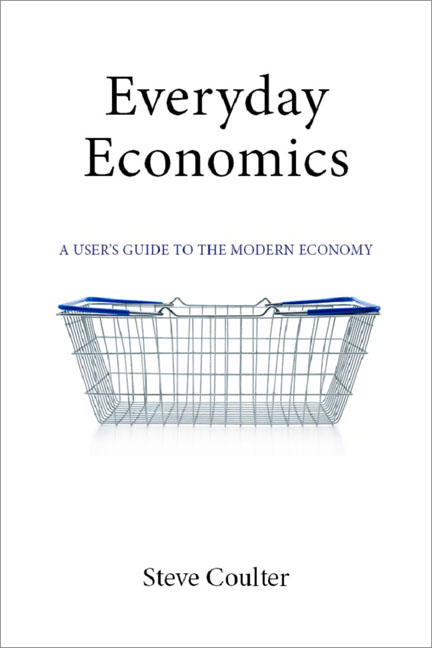Book contents
- Frontmatter
- Contents
- Preface and Acknowledgements
- 1 Economics: What is it Good For?
- 2 Knowledge is Power: Education and Training
- 3 Let’s Get Busy: Work and Occupations
- 4 Get Well Soon: Health and Healthcare
- 5 Making the World Go Around: Money, Banking and Personal Finance
- 6 Home Sweet Home: The Housing Market
- 7 Shop Till You Drop: Shopping and Consumption
- 8 From Cradle to Grave: Benefits and Welfare
- Index
5 - Making the World Go Around: Money, Banking and Personal Finance
Published online by Cambridge University Press: 09 August 2023
- Frontmatter
- Contents
- Preface and Acknowledgements
- 1 Economics: What is it Good For?
- 2 Knowledge is Power: Education and Training
- 3 Let’s Get Busy: Work and Occupations
- 4 Get Well Soon: Health and Healthcare
- 5 Making the World Go Around: Money, Banking and Personal Finance
- 6 Home Sweet Home: The Housing Market
- 7 Shop Till You Drop: Shopping and Consumption
- 8 From Cradle to Grave: Benefits and Welfare
- Index
Summary
Anyone who lives within their means suffers from a lack of imagination.
Oscar WildeKey questions
• What is money and saving, and why is money so useful?
• What is the role of banks in the financial system?
• Is it ever possible to prevent financial crashes, or is instability the price to be paid for a vibrant financial sector?
• What is the future of money and banking?
Summary
The banking and personal finance industry can do a useful job in smoothing out consumption patterns over people’s lifetimes: lending to them when they are young and cash-poor, but with most of their working life ahead of them; helping them save for family, house buying and retirement when they are older and earning at their peak; insuring against risks and misfortunes along the way; and, finally, paying out through pensions and annuities when they quit work to spend more time in the garden. Businesses also need credit to grow, and in order to employ people to generate income and savings. Balancing out the demands of these groups and their various needs, across the whole country is a big and complex business, begetting an enormous financial services industry. The flow of credit has to be managed and regulated through complex regulation alongside other tools, such as interest rates. Stabilizing these financial activities is a headache for the authorities, and sometimes – as in the financial crisis of 2007– 2010 – things go horribly wrong.
Key topics and theories covered
Money, savings and investments – the banking system and the role of central banks; the economic role of debt and credit; theories of investment; stock markets and booms and bust; interest rates; Bitcoin and new forms of money and saving.
Introduction
This chapter deals with something close to many people’s hearts: money (and saving). Money is central to economics because spending it greases the wheels of commerce and consumption. Saving our income instead of spending it can finance investment in the practices and technologies that fuel wealth creation. Both activities also entail the creation of financial institutions, such as banks, that help us manage this.
- Type
- Chapter
- Information
- Everyday EconomicsA User's Guide to the Modern Economy, pp. 99 - 124Publisher: Agenda PublishingPrint publication year: 2017



